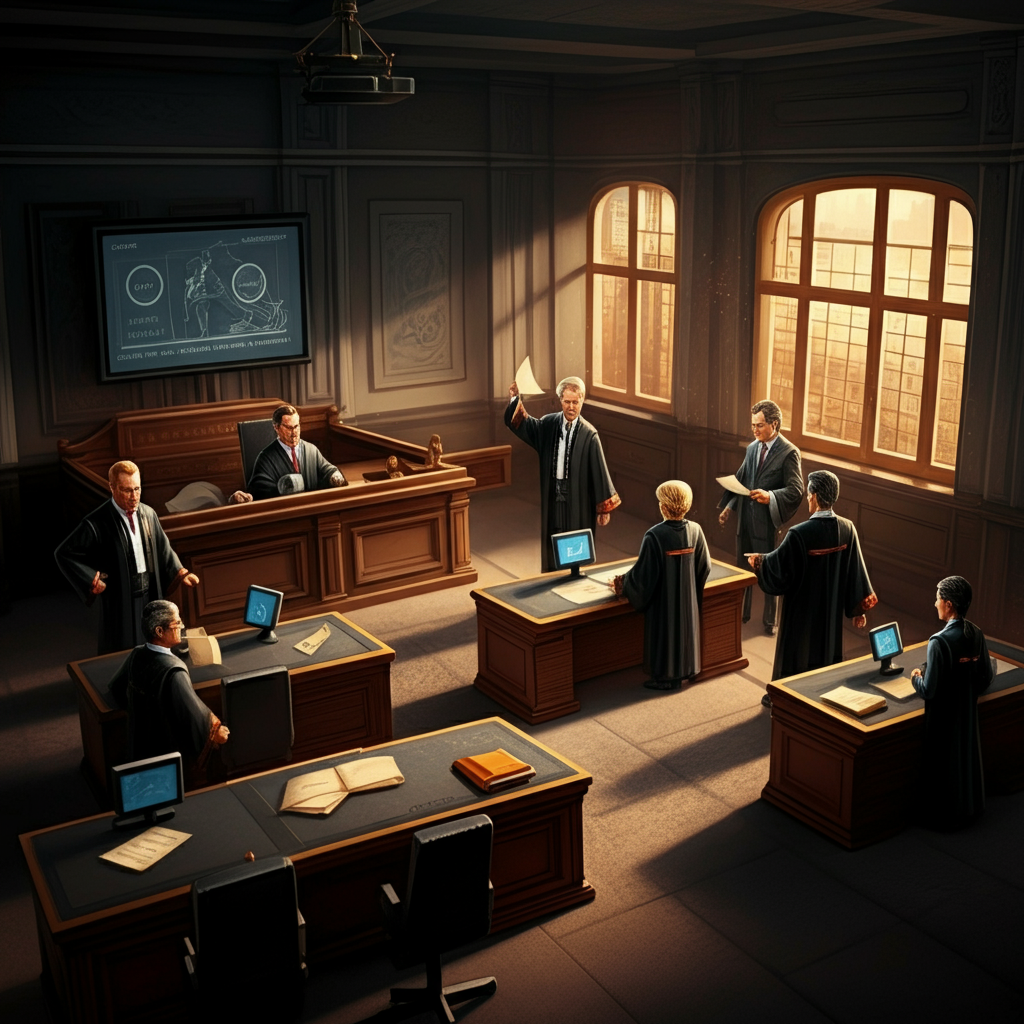“Explore the legal conflict between RTL and Shift TV, as the broadcaster challenges online video recorders and their impact on ancillary copyrights. Learn about the shifting media landscape and its implications for content distribution and copyright law.”
The Legal Dispute Between Shift TV and RTL: A Battle Over Ancillary Copyrights
In the past, there were debates about the VHS, Betamax, and Video 2000 formats. Today, the conversation has shifted to online video recorders (OVRs) that allow users to record programs on demand and store them on servers. These recordings can then be accessed individually at any time, and this technological innovation has sparked significant concerns for broadcasters like RTL. The broadcaster claims its ancillary copyrights have been violated. However, the Federal Court of Justice (BGH) has provided little support for RTL’s stance, as Jens Borchardt explains.
Shift TV vs. RTL: A Legal Overview
In a recent ruling, the Federal Court of Justice did not issue a final verdict on the matter. While the court largely sided with Shift TV, the operator of the online video recorder, it ultimately referred the case back to the Court of Appeal for further deliberations. Furthermore, both parties will likely have to engage in arbitration proceedings before the case can proceed (judgment of April 11, 2013, case number I ZR 152/11).
Shift TV’s Business Model
Shift TV’s business model relies on receiving broadcast signals from various German television programs through its own satellite antennas. Once a customer selects a program to record, Shift TV saves the program for the customer. Customers can then access or download these recordings as many times as they want, whenever they choose.
RTL’s Legal Claims
RTL, however, sought a court order to stop Shift TV from transmitting and reproducing its television programs over the internet. The key legal issue here is whether Shift TV has violated RTL’s ancillary broadcasting rights under Section 87 of the German Copyright Act (UrhG).
The Court’s Ruling on Reproduction Rights
The Federal Court of Justice found that Shift TV did not violate RTL’s reproduction rights, confirming previous rulings from 2009 (case number I ZR 216/06). Since the programs are automatically recorded and stored by Shift TV—without any human involvement—the customer, not the service itself, is considered the producer of the recording. As a result, the recording qualifies as a permissible private copy under Section 53 (1) of the German Copyright Act.
Additionally, the court rightly rejected RTL’s claim that Shift TV violated the broadcaster’s right of public access (Sections 87 (1) No. 1, Alternative two (2), and Section 19a of the Copyright Act). The court emphasized that the recordings are stored directly on individual customer storage locations, where only the respective customer can access them.
Impact on Broadcasting Rights and Retransmission
However, the Federal Court of Justice also acknowledged that Shift TV does interfere with the broadcaster’s retransmission rights. According to Sections 87 (1) No. 1 Alternative 1 and Section 20 of the German Copyright Act, a broadcaster holds the exclusive right to make its content publicly accessible by radio means. Since Shift TV can record and store broadcast signals for multiple customers simultaneously, this constitutes a potential violation of RTL’s retransmission rights.
Shift TV’s Potential Rights for Retransmission
That said, RTL might be obligated to grant Shift TV the required usage rights for retransmission. Under Section 87 (5) of the German Copyright Act, broadcasters are sometimes required to enter into agreements with cable companies for retransmitting their programs. If Shift TV can establish that such a contract exists, it could assert its rights through a compulsory license objection. However, the Federal Court of Justice noted that it remains unclear whether these conditions are met, which is why the case has been referred back to the appeals court.
Arbitration Proceedings
Even if Shift TV is granted the necessary rights, the legal dispute cannot proceed until it undergoes arbitration proceedings. These proceedings must take place before a body established by the German Patent and Trademark Office. As a result, the Federal Court of Justice’s ruling has established that such preliminary steps are also required in cases where a compulsory license objection is raised in the context of an injunction.
The History and Evolution of Online Video Recorders
The legal battle between Shift TV and RTL is part of a broader ongoing debate about how modern technology challenges traditional copyright laws. Online video recorders (OVRs) like Shift TV represent the next step in the evolution of television recording, allowing consumers to access and record television programs on demand.
Unlike traditional VCRs (Video Cassette Recorders) or DVRs (Digital Video Recorders) that recorded broadcasts onto physical or home-based digital media, Shift TV’s model is cloud-based. The recordings are automatically stored on central servers, providing customers with a flexible, on-demand viewing experience. This technological shift has raised new questions regarding reproduction rights and copyright infringement, issues that have long been contentious in media law.
Past Technological Concerns
In the 1980s, technologies like Betamax and Video 2000 faced similar opposition from broadcasters who feared their content would be copied and distributed without permission. In the Sony Corp. v. Universal City Studios case, the U.S. The Supreme Court ruled that the technology itself did not infringe on copyright law, despite allowing users to record television programs.
Similarly, Video 2000 struggled to compete with VHS due to changing consumer preferences and the rights holders’ need to control media distribution.
The Rise of On-Demand Content and its Impact on Broadcasting Rights
Fast forward to today, and on-demand streaming services like Netflix, Amazon Prime, and YouTube have revolutionized the way people consume media. These platforms move away from traditional broadcast schedules, giving users the flexibility to access content anytime and anywhere.
Shift TV and OVR Services
Shift TV and similar OVR services offer consumers an experience akin to creating their own personal on-demand library, making it possible to watch broadcast programs at their convenience.
For broadcasters like RTL, this shift represents a challenge to their traditional business model. With ancillary copyrights—which allow broadcasters to control how their content is distributed—under threat, RTL argues that services like Shift TV are infringing on its rights by storing and making their broadcasts available to users on demand. Essentially, broadcasters fear they are losing control over how their programs are consumed in the digital era.
Conclusion: The Ongoing Battle Between Traditional Broadcasts and New Technologies
For broadcasters like RTL, this shift represents a significant challenge to their traditional business models, especially as the ancillary copyright (i.e., rights to broadcast and reproduce content) comes into play. The broadcaster argues that services like Shift TV could infringe on their broadcast rights by storing their content and making it available on-demand. Essentially, the broadcaster believes that these online video services are usurping its control over how its programs are distributed and consumed.
The Specifics of the Legal Case
The legal dispute between RTL and Shift TV centers around whether Shift TV’s business model violates RTL’s ancillary copyrights, which are designed to protect broadcasters’ ability to control how their content is disseminated. RTL claims that by offering a service that records and distributes their broadcast signals without proper licensing, Shift TV is infringing on their rights.
However, Shift TV defends its actions by pointing out that the recordings are made by customers, not the service itself. Therefore, it contends that the recordings are private copies made for personal use and that it has no direct involvement in the recording process. The Federal Court of Justice’s decision to refer the case back to the Court of Appeal reflects the complexities of balancing traditional copyright principles with emerging technologies.

